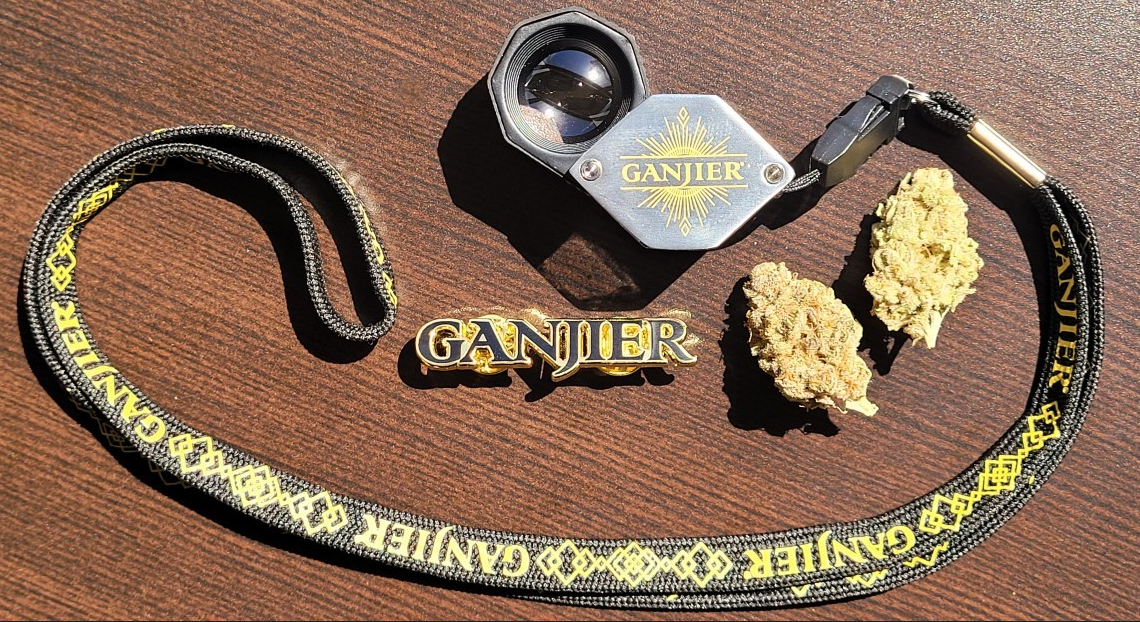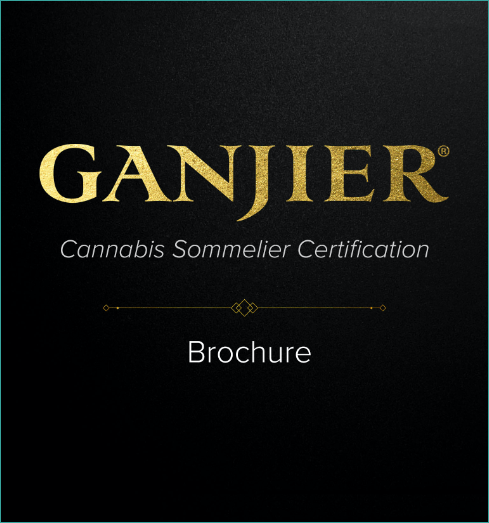“Why did I decide to become a Certified Ganjier?
The short of it: I lost a close relative to suicide, who might have been able to prolong their life had I been armed with the cannabis knowledge I possess today.
I recently wrote an essay about the loss I experienced, my decision to become a Certified Ganjier, the certification process itself, and the intense gratitude I felt once I had earned my certification.
The rigorous process to become a Certified Ganjier taught me so much about cannabis, even more about myself, and has helped me determine how I want to ‘show up’ in this industry.”
My daily life is so immersed in cannabis, it is hard to remember how limited my knowledge was when I embarked on this journey. If you asked me four years ago what CBD was, I couldn’t tell you. Hell, back then, if you asked me nearly anything about cannabis other than “what strain do you like,” I probably wouldn’t have been able to provide an intelligent response.
Despite being a cannabis consumer for nearly two decades, the most I knew about the plant was A) it helped me feel more comfortable in my own skin, and B) I liked smoking Sativas. That was about it.
I’m telling you this because I want you to understand you don’t need to be some Marijuana Mystic to have the desire, or capability, to go down the path to *HIGHER* education. The relationship you develop with the plant is what will propel you through your journey, but make no mistake, becoming a Certified Ganjier is far from a pay-to-play program. It is an innovative, rigorous, multi-tiered cannabis sommelier certification designed to create an entirely new class of cannabis professional.
As you go through it, I can promise you’ll experience a wide range of emotions, from anxiety to laughter, frustration to exuberance. But, for me at least, there was one constant sentiment through it all—a growing sense of passion and responsibility for the plant that would inevitably bring me closer to my family, my friends, and my true self.
So, why did I decide to become a Certified Ganjier? Well, as a marketer trying to build a career in cannabis, I felt it was my responsibility to ensure I knew exactly what I was selling to consumers. And as an emerging industry leader, I felt it was my responsibility to better understand what the industry can provide to the world. But on a more personal level, I felt a deep responsibility to educate. I know firsthand, many people turn to cannabis as a last resort – a final grasp at finding any sort of relief from something, be it physical or mental. And I wanted—needed—to do everything possible to be a person that could help those in pain understand the therapeutic properties of the plant and find the best product for their needs.
My story begins in 2016, leaving my newlywed wife to nurse the wounds of my recent job loss with my family in NorCal. I needed to get my head straight to regain some of the equanimity that unemployment had disrupted. Little did I know, being laid off would be the catalyst for one of the darkest times of my life. A time, however, that would inevitably set the stage for me to become a Certified Ganjier.
On the day I arrived in Santa Clara, I received one of the most devastating phone calls of my life. My cousin, whom I considered to be more of a brother, whom I had just spoken to only a few weeks prior, had just committed suicide.
I’ve replayed that last conversation with him over and over in my mind. He had been struggling with severe depression, compounded by intense back pain, and his attempts to manage them with western medicine and pharmaceuticals had not been successful. Knowing I was “the family stoner,” he called me as a last resort, looking for any advice I had about using cannabis to help ease his discomfort.
I told him all I knew: I like smoking Sativas. If he didn’t want to start smoking, he could always try edibles.
That was the best answer I could give at the time. I see that now. But, like anyone who’s suffered the loss of a loved one from suicide, I couldn’t help but wonder “what if?” What if I had been able to respond to his questions with educated answers instead of platitudes? What if I had been able to help him find a cannabinoid-based solution where modern medicine had failed him?
For years, the “what ifs” haunted me in the back of my mind. It wasn’t until I started working in the cannabis industry that I realized there was a way to channel that pain. I couldn’t change what had happened or bring my cousin back. But I could ensure I’d be better prepared in the future. So I decided to educate myself.
When access to education was more scarce, I explored on my own. I brought on cannabis clients to my digital consulting firm so I also had a fiscal responsibility to research the plant. I hungered for a deeper understanding and connection with the plant. Then in 2020, I discovered the Ganjier Program; a first of its kind Master of Cannabis Service Program. I had learned a lot already, but none of it prepared me for the rigor required to become a Certified Ganjier.
The first part of the course involved more than 40 hours of online lectures, complete with in-depth workbook assignments and quizzes. On my screen were some of the biggest names in Cannabis like Frenchy Cannoli, Amanda Reiman PhD MSW, Kevin Jodrey and Wendy Kornberg to name a few. Since I was working full-time when I started the course, it took me over a year to get through it all. On good days, I was able to find two hours to dedicate to the program. Sometimes, a week would go by where I wouldn’t touch it at all, but I felt a growing responsibility to get through it.
After completing the online courses, the real fun began. I attended the two-day, in-person intensive in the southern hills of Humboldt. The heart of the Emerald Triangle. Mecca. It was here I came face to face with the Ganjier Council. For two days, I had access to sixty years of collective knowledge and experience. Sitting in fellowship, we passed joints, and told stories. High doesn’t begin to describe how I felt.
The cornerstone of the Ganjier program is the Standardized Assessment Protocol (SAP). In the grand tradition of Sommeliers, cheesemongers, chocolatiers and the likes, the Ganjier program assesses the Appearance, Aroma, Flavor, and Effect of a cannabis experience. I cannot overstate the importance of getting comfortable with the SAP app and doing MANY assessments prior to training and testing.
The 3 part final exam is the final step. A written exam is based on the online course work. A Customer Interaction Protocol is played out with a council member and must touch on 5 specific points in the 15 min interaction. The final part of the exam (the one that has bested even the most seasoned of cannabis veterans) is the true test of your capabilities—a blind flower assessment.
Even though I felt prepared, my hands still shook as I began the appearance assessment. In order to get myself to a place where I could access my newly toned palate, I mentally placed myself back in my kitchen, head jammed in the spice cabinet – nose on overdrive. That guided me confidently through the aroma and flavor portions of the assessment. Thankfully, assessing the flower’s effects meant consuming the sample I’d been given. Needless to say, that steadied me better than any vision of spice jars ever could. At the end of the assessment, despite the work I had put in…even though I knew I was meant to do this…I didn’t pass the appearance section of the assessment. In that moment I had a chance to doubt myself. But this program taught me to trust my gut. And so, on my second attempt I did just that and passed.
Of the 12 people that tested that day, only 6 became Certified Ganjiers. As I reflected on that success rate during my post-graduation drive back to the hotel, I felt a mix of emotions. Pride in my journey and the resulting certification. Appreciation to the Ganjier Council for creating such an informative and demanding program. Relief that it was over. But mostly, I felt that sense of passion and responsibility that had been bubbling up inside me since 2016 intensify
I realized, as a Certified Ganjier, I was privileged to be armed with more information about cannabis than I had ever thought possible. And yet, I knew my cannabis education didn’t end with Ganjier. It couldn’t. I had dedicated myself to continually seek out knowledge and understanding of cannabis as a plant, an industry, a culture, and a product, and that’s exactly what I was going to do.
I urge my fellow Ganjiers, both certified and in-training, to make the same commitment. To not take this responsibility bestowed upon us lightly. To keep learning, keep asking questions, keep indulging your curiosity. Not for the glory or the promise of a better job, but because the knowledge you amass might save someone’s life one day…and I know firsthand it can change your own.


